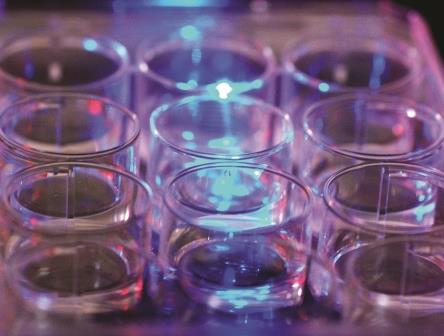
The Enterprise Europe Network helps a Scottish company ready its innovation for the global market.
Research scientist Colin Wilde founded AvantiCell Science Ltd. in Ayr, Scotland, in 2006. Passionate about developing life-saving medicines, the company tested candidate drugs on ethically sourced human cells, like for example from tumours that had been surgically removed.
But as working with human cells does not always produce consistent test results, Colin pioneered a method of printing three-dimensional scale models of cells that allows researchers to work with multiple cell types and thus get more reliable results. To take their life-saving testing methods to the next level, they just needed the financial means to commercialise their breakthrough technology.
In search of new funding horizons
Colin had heard about the EU’s Horizon 2020 research and innovation programme which had €3 billion of funding specifically earmarked to help innovative small firms with high growth potential take their ideas from the lab to the market.
To find out more, the company contacted their local Enterprise Europe Network branch at Scottish Enterprise, where Camille Moran and her colleagues provided practical advice throughout the application process. That included flagging relevant calls for funding, and helping to perfect the application.
The hard work paid off, and AvantiCell secured €50,000 for a market feasibility study from the SME Instrument programme, on its 3D printing project called Anaprint. Encouraged by this initial success, the company applied for the highly competitive second funding round for innovation projects underpinned by a sound and strategic business plan.
“We mainly helped to make sure their business case was really solid,” said Camille. This included pointing them to a local business innovation coach and reviewing application drafts along with outside experts.
To the door of the market
Thanks to the collaborative effort, AvantiCell gained €2 million in funding to “take the main output literally to the door of the market,” said AvantiCell’s Colin Wilde.
“The Enterprise Europe Network support was invaluable in helping us put our application in plain English and to emphasise the business opportunity. We could not have done that on our own.”
In two years when the project finishes, the technology will be made available to pharmaceutical companies and others researching potentially life-saving drugs.
Photos: © AvantiCell Science Ltd.